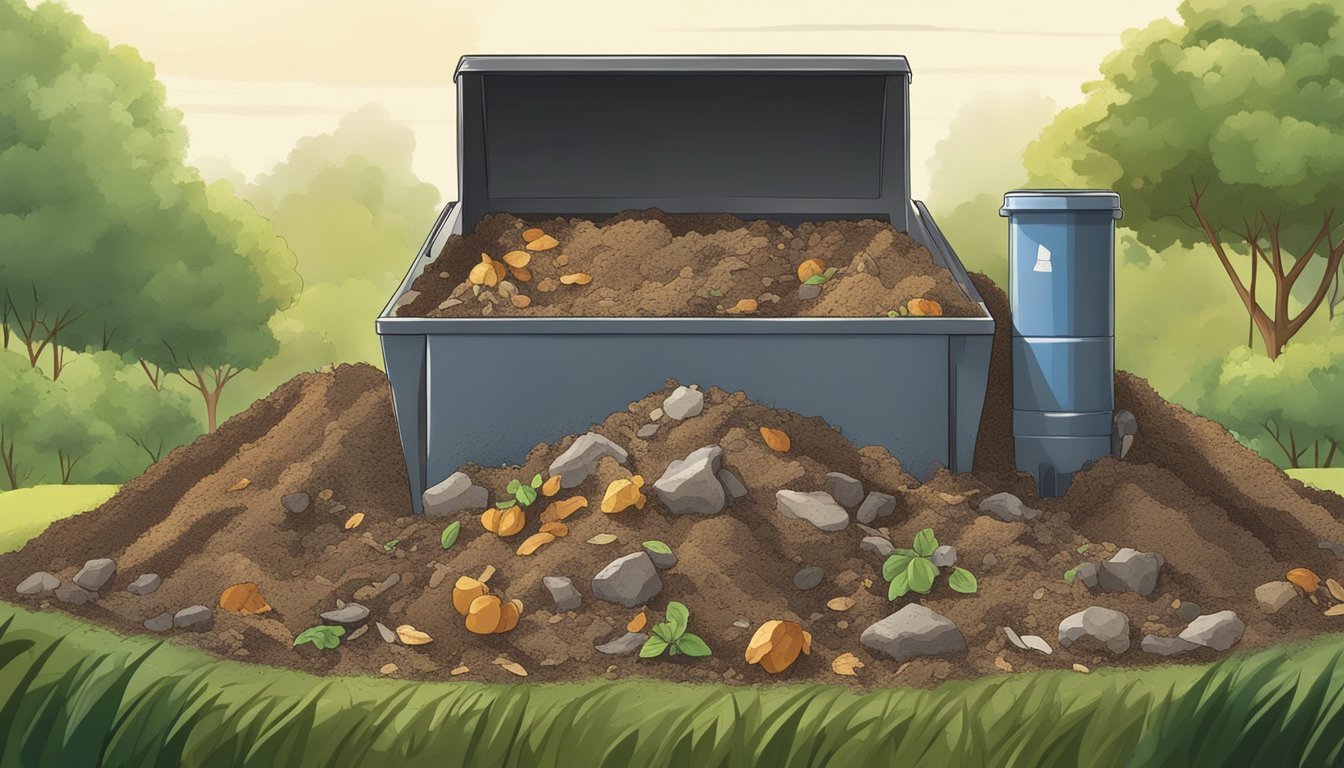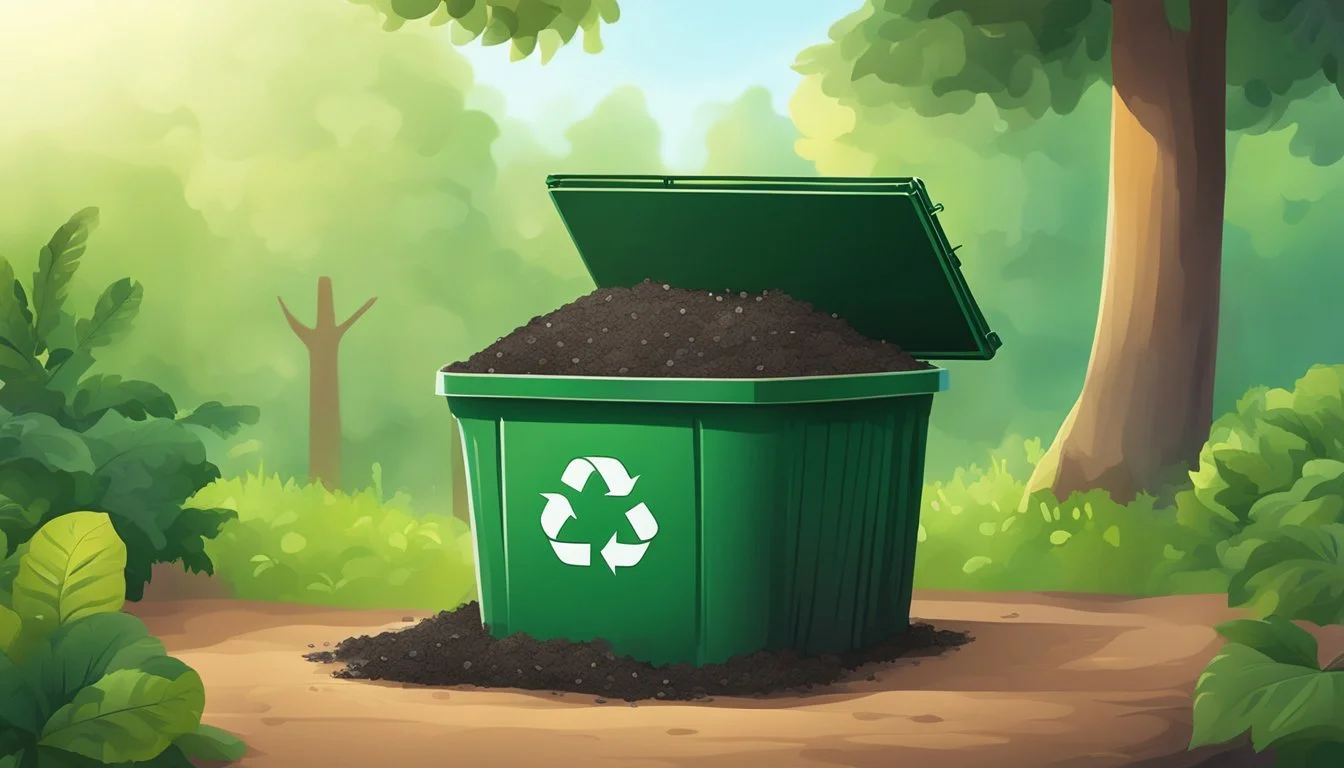Can You Compost Ashes?
Understanding Ashes in Compost Bins
Ashes can be a useful addition to compost, contributing to the nutrient content and improving soil health when used correctly. Compost benefits from a diverse set of organic materials, and including ashes can enhance this mixture. Not all ashes are suitable for composting, but wood ashes, in particular, are rich in potassium and other micronutrients that support plant growth. They are highly alkaline and can be employed to balance the pH levels within a compost heap, rendering the resulting compost more beneficial for garden soils that require amendment.
When adding ashes to compost, one must consider their origin and the substances that were burned to produce them. Only clean, untreated wood ashes should be integrated into compost to avoid introducing harmful chemicals into the mix. In moderate amounts, wood ashes can contribute essential elements like lime and potassium, as well as various trace minerals that plants need for healthy development. However, due care is necessary, as excessive use of ashes can lead to an imbalance in the compost pH, potentially hindering the composting process and the beneficial breakdown of other organic materials.
The use of ashes in compost is a practice rooted in an understanding of their properties and effects on the composting ecosystem. Gardeners must navigate the fine line between beneficial and excessive quantities to ensure they do not disrupt the delicate balance necessary for producing rich, healthful compost. With careful application, ashes can indeed be a valuable component in the art and science of composting.
What Are Ashes?
Ashes are the powdery residue left after the combustion of materials, such as wood, coal, paper, or charcoal. They contain a variety of chemical compounds that have various uses and effects when applied to soil, including composting.
Types of Ashes
Wood Ashes: Produced from the burning of wood, wood ashes are commonly used in gardening and composting.
Coal Ashes: A by-product of coal combustion, coal ashes are often heavier and may contain higher levels of heavy metals, making them less desirable for compost.
Charcoal Ash: Though similar to wood ashes, charcoal ash can contain residues from additives used during the charcoal-making process.
Paper Ashes: These ashes result from burning paper and can contain inks and chemicals, which might not be suitable for composting.
Chemical Properties of Ashes
Ashes, particularly wood ash, have significant amounts of potassium, calcium, and magnesium, benefiting plant growth. They also contain phosphorus and trace elements, providing a nutrient boost. Most ashes tend to be alkaline, raising the soil's pH level, which can neutralize acidic soils but may be unsuitable for already neutral to alkaline soils. One should consider the presence of soluble salts and potential heavy metals when adding ashes to compost, as these can be harmful in excess.
Benefits of Ashes in Compost
Incorporating ashes into compost can enhance the mix by providing valuable minerals and regulating soil pH levels, which can lead to healthier plant growth in the garden.
Nutrient Contribution to Compost
Ashes introduce essential minerals into compost, which, in turn, enrich the soil in a garden. These minerals include but are not limited to:
Potassium (K): Crucial for plant health and growth.
Calcium (Ca): Vital for cell wall construction and soil health.
Magnesium (Mg): A central component of chlorophyll, necessary for photosynthesis.
Phosphorus (P): Supports the development of roots and flowers.
Additionally, ashes can contribute micronutrients such as zinc (Zn), iron (Fe), manganese (Mn), and boron (B), though in smaller quantities. These elements are integral to plant health and can be particularly beneficial in organic compost systems.
Liming Effect on Soil pH
Wood ash has a liming effect, which means it can help to neutralize acidic soils, raising the pH to a more neutral level. An alkaline soil environment benefits plants that struggle in overly acidic conditions by making the soil environment more hospitable and aiding in nutrient uptake. However, it’s crucial to use ashes sparingly to avoid making the soil excessively alkaline, which can inhibit plant growth.
Precautions and Best Practices
When incorporating ashes into compost, users should be cognizant of the origin of the ashes and adhere to safety protocols. These precautionary measures ensure a healthful composting process and prevent the introduction of contaminants.
Dealing With Treated Wood and Charcoal Ashes
Treated wood, including painted or chemically treated wood, should not be used for composting. They often contain harmful chemicals that can leach into the compost, thereby degrading its quality and posing a risk to soil health. Charcoal, especially from briquettes that may contain chemical additives, poses similar risks. These chemical residues can persist and ultimately harm plant growth. Instead, only ash from untreated, natural wood is suitable for composting.
Safety Measures During Handling
Prior to working with ashes, it is important for individuals to don protective gear. This includes wearing gloves to protect the skin, a face mask to avoid inhaling fine ash particles, and eye protection to prevent ash from entering the eyes. Even when working with untreated wood ashes, which are considered safe for composting, such precautions are instrumental in safeguarding personal health during the handling process.
How to Compost Ashes Effectively
Composting ashes can benefit your garden by adding nutrients and regulating pH balance when done effectively. Proper ash selection and balance maintenance within the compost pile are essential.
Identifying Appropriate Ash Types
Only certain types of ashes can be safely composted. Wood ash is ideal as it contains potassium, phosphorus, and calcium, which can significantly enhance the soil's nutrient profile. However, one must ensure that the wood ash is free from any treated wood or synthetic additives. Paper ash from untreated paper can also be a valuable addition, but in moderation due to potential heavy metals.
Maintaining Proper Balance
The composting process relies on balancing carbon-rich materials, or brown materials, with nitrogen sources. High-carbon brown materials include things like dry leaves, shredded cardboard, and straw. Nitrogen fertilizer, green waste like grass clippings and kitchen scraps, provides a nitrogen source vital for decomposition.
Mix ashes sparingly into your compost to avoid altering the pH balance excessively. A light sprinkling over the brown material layer before adding a nitrogen source is effective.
Regularly turn the compost to distribute the ashes and maintain moisture levels for optimal decomposition.
By carefully selecting the right type of ash and maintaining a balanced compost mixture, the result will be healthy, nutrient-rich soil.
Ashes and Soil Health
Incorporating ashes into garden soil is a natural method to adjust soil pH levels and contribute to the nutrient content conducive to plant growth.
Modulating Soil pH with Ashes
Ashes, particularly wood ash, are rich in compounds like calcium carbonate, which acts similarly to lime. Using ashes in the soil can increase the pH level, transforming it from acidic to more alkaline.
Ideal for: As gardeners, they may find it beneficial for plants that prefer neutral to alkaline soil conditions.
Not suitable for: However, for acid-loving plants such as blueberries, rhododendrons, and azaleas, the addition of ashes could be detrimental.
Here is a simplified guideline for using ashes to adjust soil pH:
Test your soil's pH before applying ashes.
Only apply a thin layer of ashes to the soil to avoid drastic pH changes.
Monitor the soil pH periodically after application.
Impact of Ashes on Plant Growth
Ashes can be a source of essential nutrients that are beneficial for overall plant health.
Macronutrients: They provide potassium, which is vital for plant growth.
Micronutrients: Additionally, they contain trace amounts of other nutrients like magnesium, phosphorus, copper, and zinc.
However, the use of ashes should be moderated as an excessive amount can lead to an imbalance in nutrient levels. Here's a quick overview of ashes related to plant nutrients:
Nutrient Role in Plant Growth Consideration when Adding Ashes Potassium Enhances root development and drought resistance Boosts plant vigor when used in moderation Phosphorus Important for photosynthesis and energy transfer Overuse can lead to a buildup in the soil Magnesium Key for chlorophyll production Necessary in small quantities Copper & Zinc Essential for various enzymatic reactions Trace amounts can be beneficial
Moderate use of ash as a soil amendment can lead to enhanced fertility and improved plant growth, but one must exercise caution not to upset the delicate equilibrium of soil chemistry.
Environmental Considerations
When incorporating ashes into a compost heap, one must consider its impact on the environment, particularly in relation to the organic matter's decomposition process and pest management within the compost ecosystem.
Effects on Microbial Activity
Microorganisms are essential for breaking down organic matter in a compost heap. They require a balanced environment to function effectively. Ashes can influence the compost environment by altering the pH level. Wood ashes, typically alkaline in nature, may neutralize overly acidic soils, benefiting the composting process by creating a more favorable environment for microbial activity. However, excessive use of ashes can disrupt this balance, hindering these microbes' ability to decompose organic materials efficiently.
Using Ashes as a Pest Deterrent
Ashes may play a role as a pest deterrent within a compost heap. They can create an unsuitable environment for pests such as slugs and snails, which prefer more acidic conditions. By sprinkling a moderate layer of ashes over the compost, one can discourage these pests from inhabiting and potentially harming the organic matter intended for decomposition. It is crucial to use ashes sparingly, as high concentrations can negatively affect both pests and the beneficial microbes that are vital to the composting process.





